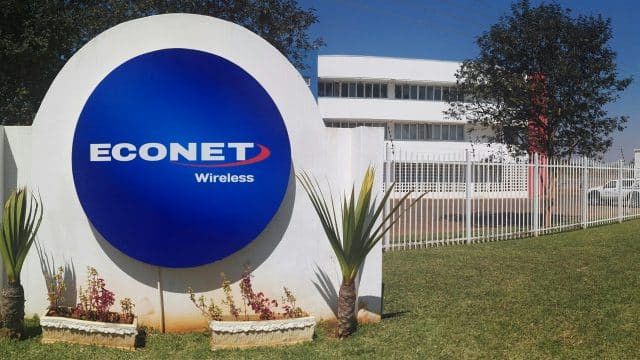
ECONET Wireless Zimbabwe has called for balanced regulation in the telecommunications sector, given the rising operational costs driven by inflation and the shift to using the greenback.
In a trading update for the third quarter ended November 30, 2023, the Zimbabwe Stock Exchange-listed giant urged the authorities to come up with regulations that benefit the consumer and businesses.
“Due to the high inflationary pressures, the business is calling for balanced regulation, an important step given the rising operational costs driven by inflation and the shift to using the US dollar,” the firm said.
“It is essential to find a middle ground where tariffs remain practical for the business without becoming unaffordable for consumers.”Annual inflation rate stood at 26,5% in December last year.
Econet said regional benchmarks reflected that local telecommunication tariffs remained much lower.The low tariff comes despite Zimbabwe’s telecomd firms experiencing higher costs and foreign currency challenges.
According to a report by the Postal and Telecommunications Regulatory Authority of Zimbabwe, the growth in market share for voice and data services points to Econet’s success in delivering value to its customers.
“The increased consumption and usage patterns show that ongoing investment in network infrastructure is imperative. Econet voice market share increased slightly and data market share decreased marginally. Other key metrics such as base station and 4G base station market share continue to improve,” it said.
The firm said the continued increase in data traffic reflected the changing consumer behaviour and the evolving usage patterns towards data intensive applications such as video streaming, social media engagement and online gaming which required commensurate capital expenditure in order to continue to provide quality service.
- Mboweni mentors emerging entrepreneurs, calls for integrity in business
- Mboweni mentors emerging entrepreneurs, calls for integrity in business
- Zim tycoons elevate offspring to key roles
- Zim tycoons elevate offspring to key roles
Keep Reading
“This will require a supportive tariff regime given the inflation trends.“In order to sustain the quality of services amid higher usage rates, there’s a need for tariffs that support the business, especially as inflation impacts capital spending,” it said.“Implementing cutting-edge network technology, optimising spectrum utilisation and increasing network density is necessary to manage growing data traffic and maintain a resilient network.”
The company said it had been actively developing its network capabilities and securing its services in response to the digital economy’s expansion and the growing need for mobile services.
This has allowed the business to continue thriving despite facing external pressures.“To mitigate the negative impact of power outages, the business continues to invest in solar solutions. To counter the impact of vandalism and theft, the business has invested in enhanced security systems which have become even more critical in the current socio-economic environment.”
Inflation-adjusted revenue for the period under review increased by 177% from ZWL$0,8 trillion relative to the same period last year.The growth in voice and data traffic of 28% and 26%, respectively was largely anchored on network modernisation.
Exchange losses continued to weigh down the financial performance of the business. For the period under review, exchange losses were 20% of revenue against a prior period comparative of 26%.
The company said after the successful settlement of debentures in September 2023, the exchange losses exposure was significantly reduced and this should improve the business performance going forward.







